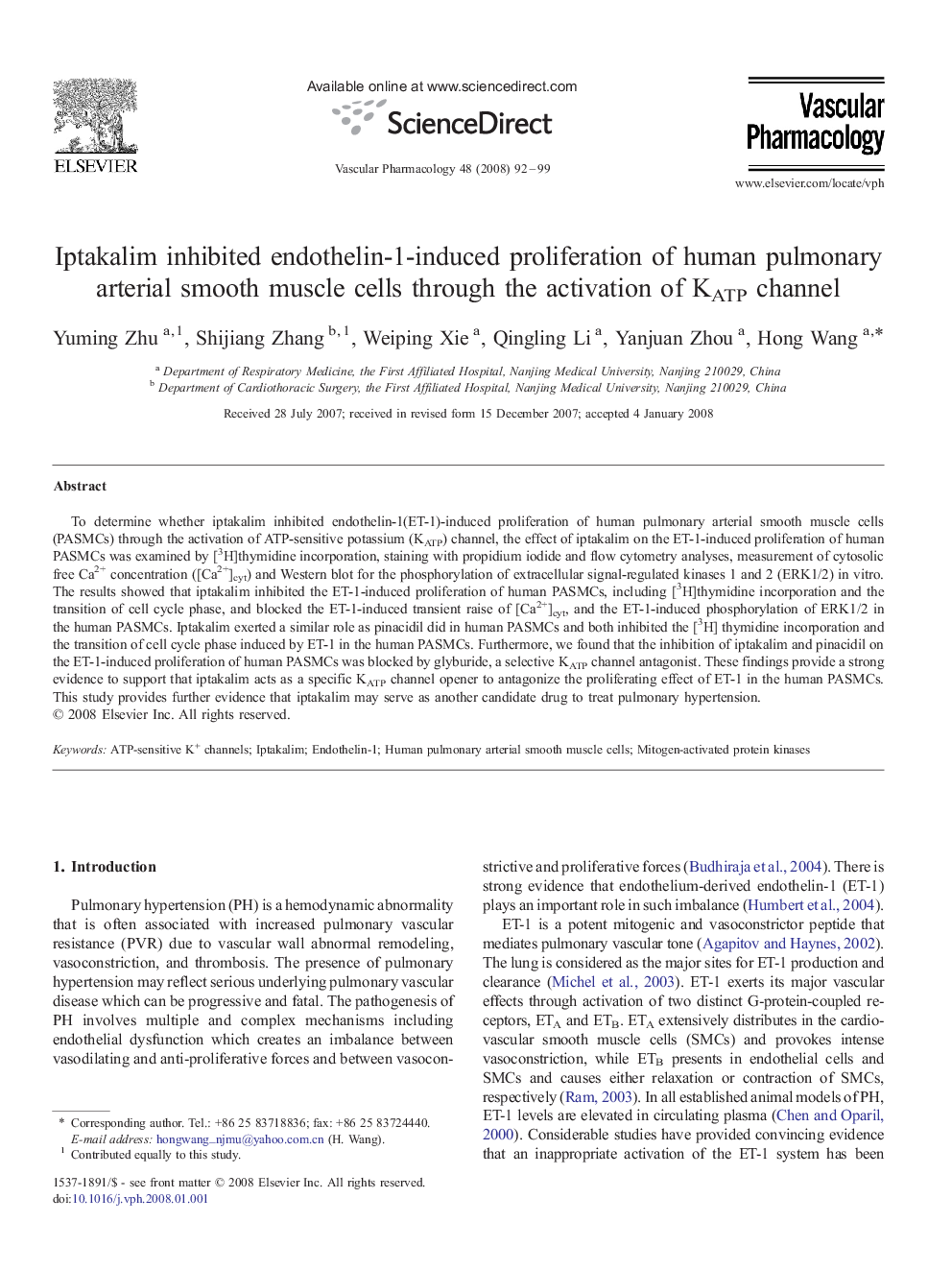| Article ID | Journal | Published Year | Pages | File Type |
|---|---|---|---|---|
| 2574797 | Vascular Pharmacology | 2008 | 8 Pages |
To determine whether iptakalim inhibited endothelin-1(ET-1)-induced proliferation of human pulmonary arterial smooth muscle cells (PASMCs) through the activation of ATP-sensitive potassium (KATP) channel, the effect of iptakalim on the ET-1-induced proliferation of human PASMCs was examined by [3H]thymidine incorporation, staining with propidium iodide and flow cytometry analyses, measurement of cytosolic free Ca2+ concentration ([Ca2+]cyt) and Western blot for the phosphorylation of extracellular signal-regulated kinases 1 and 2 (ERK1/2) in vitro. The results showed that iptakalim inhibited the ET-1-induced proliferation of human PASMCs, including [3H]thymidine incorporation and the transition of cell cycle phase, and blocked the ET-1-induced transient raise of [Ca2+]cyt, and the ET-1-induced phosphorylation of ERK1/2 in the human PASMCs. Iptakalim exerted a similar role as pinacidil did in human PASMCs and both inhibited the [3H] thymidine incorporation and the transition of cell cycle phase induced by ET-1 in the human PASMCs. Furthermore, we found that the inhibition of iptakalim and pinacidil on the ET-1-induced proliferation of human PASMCs was blocked by glyburide, a selective KATP channel antagonist. These findings provide a strong evidence to support that iptakalim acts as a specific KATP channel opener to antagonize the proliferating effect of ET-1 in the human PASMCs. This study provides further evidence that iptakalim may serve as another candidate drug to treat pulmonary hypertension.
